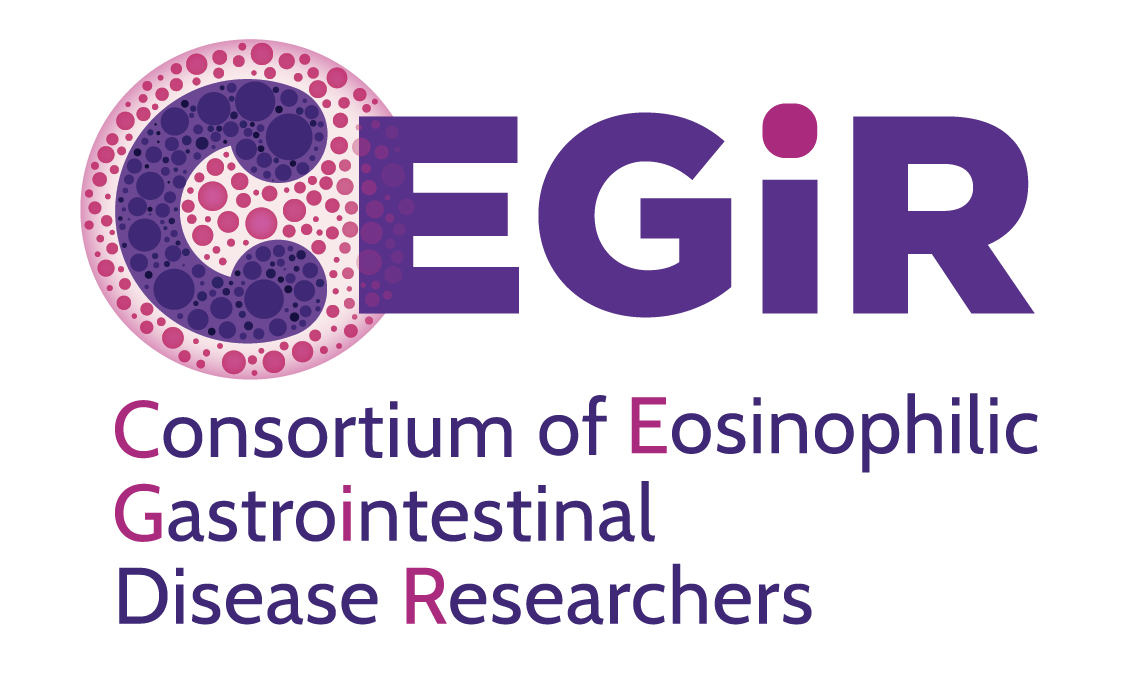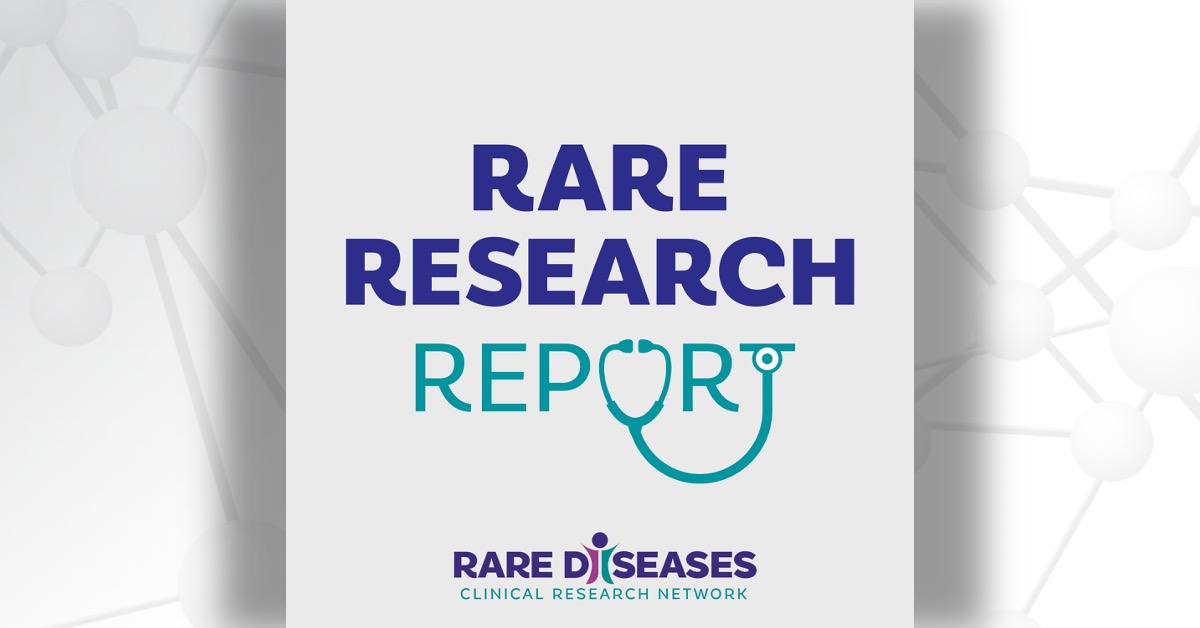Each month, we share summaries of recent Rare Diseases Clinical Research Network (RDCRN) grant-funded publications. Catch up on the latest RDCRN research below.
Jump to:
- Consortium of Eosinophilic Gastrointestinal Disease Researchers (CEGIR)
- Nephrotic Syndrome Study Network (NEPTUNE)
Listen to these summaries on the Rare Research Report podcast.
Consortium of Eosinophilic Gastrointestinal Disease Researchers (CEGIR)
Discussing Breakthrough Discoveries in Eosinophilic Gastrointestinal Disorders
Eosinophilic gastrointestinal disorders (EGIDs) are a group of chronic immune system disorders in which a type of white blood cell (eosinophils) build up in the gastrointestinal tract, causing inflammation or injury.
In February 2022, the American Academy of Allergy, Asthma, and Immunology hosted their annual meeting to discuss innovations in research. During the meeting, CEGIR and the International Gastrointestinal Eosinophil Researchers organized a day-long symposium focused on breakthrough discoveries in EGIDs.
The symposium featured a review of recent discoveries in the basic biology, pathogenesis, and clinical features of EGIDs. Topics included diagnostic and management approaches, as well as clinical trials of emerging therapies.
Chehade M, Wright BL, Atkins D, Aceves SS, Ackerman SJ, Assa'ad AH, Bauer M, Collins MH, Commins SP, Davis CM, Dellon ES, Doerfler B, Gleich GJ, Gupta SK, Hill DA, Jensen ET, Katzka D, Kliewer K, Kodroff E, Kottyan LC, Kyle S, Muir AB, Pesek RD, Peterson K, Shreffler WG, Spergel JM, Strobel MJ, Wechsler J, Zimmermann N, Furuta GT, Rothenberg ME. Breakthroughs in understanding and treating eosinophilic gastrointestinal diseases presented at the CEGIR/TIGERs Symposium at the 2022 American Academy of Allergy, Asthma & Immunology Meeting. J Allergy Clin Immunol. 2023 Dec;152(6):1382-1393. doi: 10.1016/j.jaci.2023.08.021. Epub 2023 Sep 3. PMID: 37660987.
Nephrotic Syndrome Study Network (NEPTUNE)
Focal segmental glomerulosclerosis (FSGS) is a kidney disorder characterized by scarring of a limited number of glomeruli (kidney structures responsible for filtering the blood and removing waste in urine). African Americans have a significantly higher risk of developing chronic kidney disease, especially FSGS, than European Americans. Two coding variants (G1 and G2) in the APOL1 gene play a major role in this disparity.
In this study, researchers investigated the role of the APOL1 p.N264K variant in G2-associated FSGS and chronic kidney disease. The team compared the frequency of this variant in patients with FSGS and those without kidney disease, conducting a comprehensive analysis to explore its impact.
Results show a strong protective effect of the variant against APOL1-related FSGS and chronic kidney disease, countering the toxic effect of the G2 allele. Authors note that this allows APOL1 high-risk individuals to be reclassified as non-high-risk if they carry the variant.
Gupta Y, Friedman DJ, McNulty MT, Khan A, Lane B, Wang C, Ke J, Jin G, Wooden B, Knob AL, Lim TY, Appel GB, Huggins K, Liu L, Mitrotti A, Stangl MC, Bomback A, Westland R, Bodria M, Marasa M, Shang N, Cohen DJ, Crew RJ, Morello W, Canetta P, Radhakrishnan J, Martino J, Liu Q, Chung WK, Espinoza A, Luo Y, Wei WQ, Feng Q, Weng C, Fang Y, Kullo IJ, Naderian M, Limdi N, Irvin MR, Tiwari H, Mohan S, Rao M, Dube GK, Chaudhary NS, Gutiérrez OM, Judd SE, Cushman M, Lange LA, Lange EM, Bivona DL, Verbitsky M, Winkler CA, Kopp JB, Santoriello D, Batal I, Pinheiro SVB, Oliveira EA, Simoes E Silva AC, Pisani I, Fiaccadori E, Lin F, Gesualdo L, Amoroso A, Ghiggeri GM, D'Agati VD, Magistroni R, Kenny EE, Loos RJF, Montini G, Hildebrandt F, Paul DS, Petrovski S, Goldstein DB, Kretzler M, Gbadegesin R, Gharavi AG, Kiryluk K, Sampson MG, Pollak MR, Sanna-Cherchi S. Strong protective effect of the APOL1 p.N264K variant against G2-associated focal segmental glomerulosclerosis and kidney disease. Nat Commun. 2023 Nov 30;14(1):7836. doi: 10.1038/s41467-023-43020-9. PMID: 38036523; PMCID: PMC10689833.
The Rare Diseases Clinical Research Network (RDCRN) is funded by the National Institutes of Health (NIH) and led by the National Center for Advancing Translational Sciences (NCATS) through its Division of Rare Diseases Research Innovation (DRDRI). Now in its fourth five-year funding cycle, RDCRN is a partnership with funding and programmatic support provided by Institutes, Centers, and Offices across NIH, including the National Institute of Neurological Disorders and Stroke, the National Institute of Allergy and Infectious Diseases, the National Institute of Diabetes and Digestive and Kidney Diseases, the Eunice Kennedy Shriver National Institute of Child Health and Human Development, the National Institute of Arthritis and Musculoskeletal and Skin Diseases, the National Heart, Lung, and Blood Institute, the National Institute of Dental and Craniofacial Research, the National Institute of Mental Health, and the Office of Dietary Supplements.


